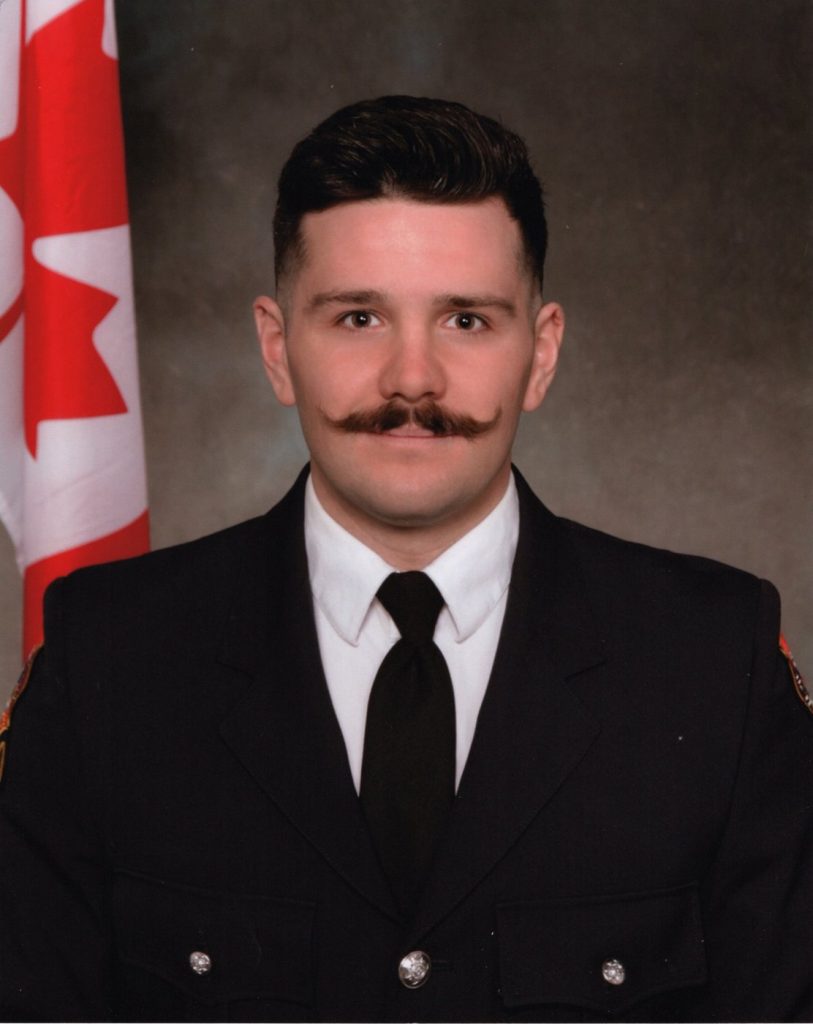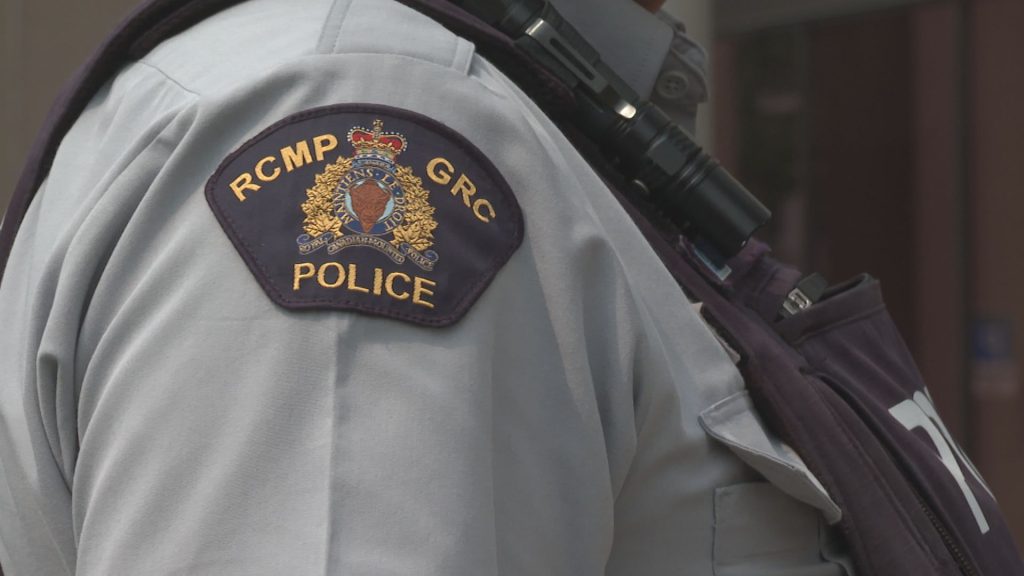Family seeks reform as details of firefighter’s death at N.S. training school emerge

Posted Aug 16, 2024 02:19:13 PM.
Last Updated Aug 16, 2024 05:01:15 PM.
HALIFAX — The family of a Nova Scotia firefighter who died during a 2019 training session is stepping up its push for reform of a firefighting school after learning he had raised concerns about the equipment that led to his death.
Skyler Blackie died in March 2019 after the bottom of a rusted extinguisher blew off as he recharged it with propellant during a certification exam at the non-profit Nova Scotia Firefighters School in Waverley, N.S. The extinguisher was one of several that had been donated to the school by a decommissioned refinery.
A Labour Department incident report obtained and released this week by Blackie’s family says that during the training session, Blackie “observed some rust on the bottom of the extinguisher but was assured it was all right to use from the instructor.”
Blaine Blackie, Skyler’s father, said in an interview Friday that he was shocked to learn this detail, even after sitting through the court case that resulted in a provincial court judge fining the school in 2022 for safety violations.
“This week was the first time we heard that,” he said. “It went from a gut punch to crying. It was so sad.”
The school didn’t immediately respond to telephone and email requests for comment regarding the report.
The latest details about Skyler Blackie’s death come just days after the Labour Department said it issued the school 41 new safety recommendations and noted 22 “high-risk activities” as a result of a third-party audit in 2023.
Sarah MacNeil, a spokeswoman with the provincial Labour Department, said it “has been working with the Nova Scotia Firefighters School since we first requested a third-party assessment of the work site last year.”
In July, the department issued a compliance order for the 22 “high risk” activities, adding, “when compliance was not fully achieved, we issued a stop-work order on Aug. 16 that prohibits any high-risk training activities.”
“The stop work order will remain in place, and the activities cannot resume, until compliance is achieved.”
The department, however, did not describe what activities have been paused.
The Blackie family has called on the province to bring the school into the community college system and to tighten regulatory oversight of its practices.
A provincial court judge found in April 2022 that the school had breached occupational health and safety laws in Skyler Blackie’s death. Judge William Digby levied fines against the organization and ordered it to prepare a safety presentation documenting what went wrong. The resulting PowerPoint presentation acknowledged the school hadn’t properly inspected the donated extinguishers or kept adequate records on their maintenance.
Last week, after the Blackie family learned of the safety audit results, they launched a petition saying that “unlike other provinces with stable funding and support structures, Nova Scotia’s programs lack regulation.” The family is asking Nova Scotia to consider setting up training programs in their community college system, as is the case in New Brunswick and Prince Edward Island, and to redraft legislation to heighten safety oversight of firefighter training.
Blaine Blackie said the family is determined to increase pressure for legislative reforms. He said letters have been sent to 30 members of the legislature, and he’s hoping the matter will be on the government’s agenda when the legislature resumes sitting in September.
He said his son — who was a firefighter in Truro — was acutely aware of safety and it was very much in his character to have noticed a problem like corrosion on an extinguisher. He said he has concluded that his son’s death wasn’t an isolated incident, but rather reflects deeper problems in the Halifax-area school.
In the court-ordered safety presentation prepared by the school, it is noted that fire extinguisher servicing is now done by a certified third-party provider, records of service are kept and new employee training programs specifically include training on fire extinguishers.
The presentation also says that the school no longer accepts donations of gear that has expired and is not in certifiable condition. It says the school now ensures that fire extinguishers are visually inspected for signs of damage and corrosion before training sessions.
The training school is a non-profit organization with a 27-person board of directors that includes a representative from each county in the province and the Nova Scotia fire marshal.
This report by The Canadian Press was first published Aug. 16, 2024.
Michael Tutton, The Canadian Press








